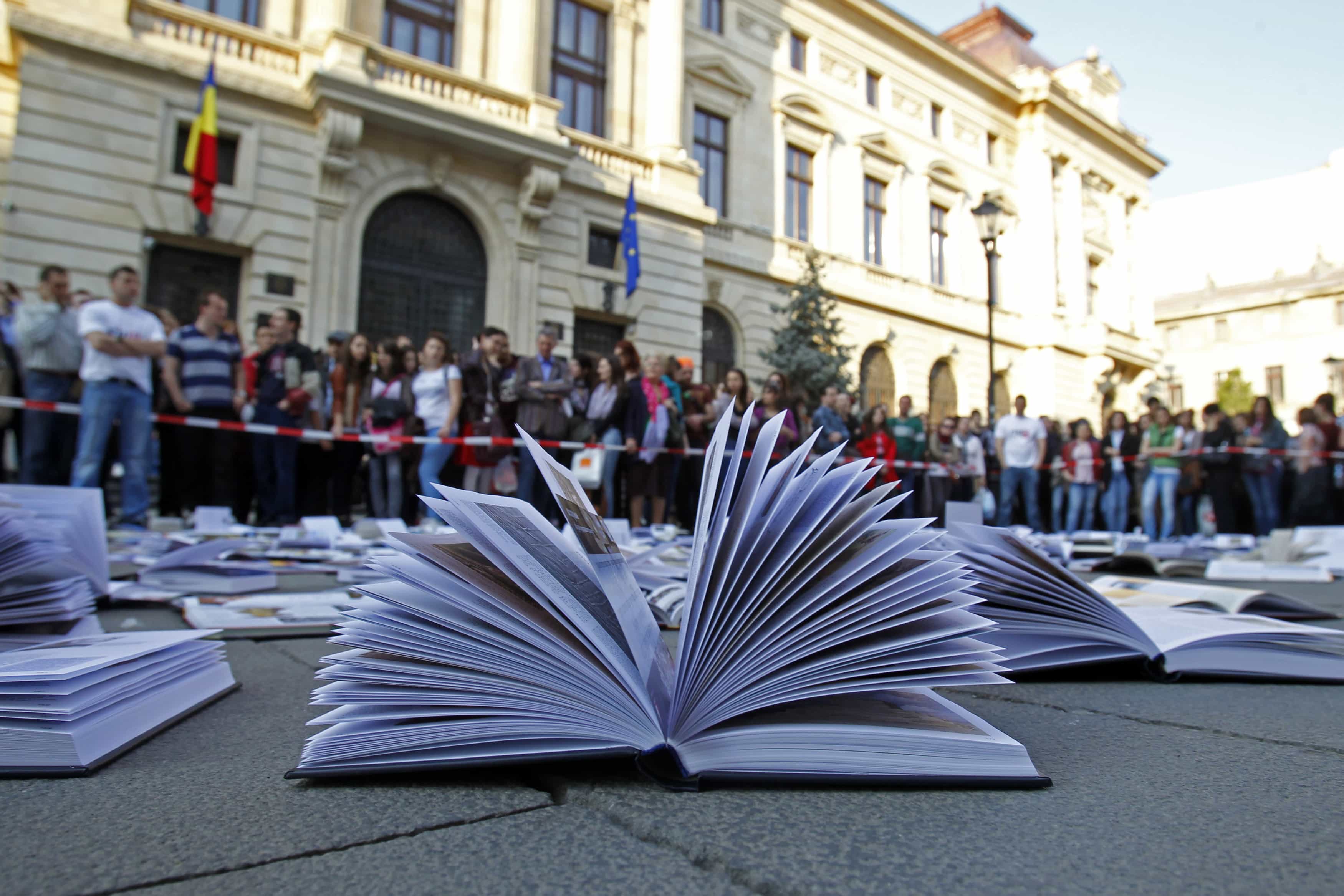In the week leading up the two-year anniversary of the SOPA blackout protests, EFF and others are talking about key principles that should guide copyright policy.
In the week leading up the two-year anniversary of the SOPA blackout protests, EFF and others are talking about key principles that should guide copyright policy. Every day, they take on a different piece, exploring what’s at stake and and what we need to do to make sure the law promotes creativity and innovation. EFF has put together a page where you can read and endorse the principles yourself. Let’s send a message to DC, Hollywood, Silicon Valley, Brussels, and wherever else folks are making new copyright rules: We’re from the Internet, and we’re here to help.
Day 1: Transparency
Copyright policy must be set through a participatory, democratic and transparent process. It should not be decided through back room deals or secret international agreements.
Excerpt from EFF statement “Transparency Is Fundamental to Good Copyright Policy”:
In the days after millions of Internet users banded together to derail the Stop Online Piracy Act (SOPA), and just as millions of others were organizing to stop the Anti-Counterfeiting Trade Agreement (ACTA), Motion Picture Association of America Chairman Chris Dodd told the New York Times that he would “welcome a summit meeting between Internet companies and content companies, perhaps convened by the White House, that could lead to a compromise.” The former Senator apparently hoped for a return to the traditional game, where law and policy are written by lobbyists, sold through back-room deals negotiated behind closed doors, and passed with little chance for careful review.
Two years later, the content industries (and some of their friends in Washington) still haven’t figured out that we’re not going to let that happen. Copyright policy is too important to leave to lawyers and lobbyists. The rest of us need and want to be part of the process. And that means we need, and demand, openness and transparency at every stage of that process.
Day 2: Building and Defending a Robust Public Domain
The public domain is our cultural commons and a public trust. Copyright policy should seek to promote, and not diminish, this crucial resource.
Excerpt from EFF statement “The Law Belongs in the Public Domain”
For nearly two centuries it has been a basic precept that the law lives in the public domain. It’s simple: in a democratic society, people must have an unrestricted right to read and speak their own laws. Full stop.
Of course, that principle means the law can never be subject to copyright restrictions. If any single entity owns a copyright in the law, it can buy, sell or ration the law, and make all sort of rules about when, where, and how we share it. People should never have to pay a fee to review and compare the rules and regulations they must obey, and no private entity should be the gatekeeper to the law.
Continue reading
Day 3: Open Access
The results of publicly funded research should be made freely available to the public online, to be fully used by anyone, anywhere, anytime.
Excerpt from EFF statement “In the Open Access Fight, Big Publishers Are the Biggest Hurdle”
Sometime it’s hard to believe that we are still arguing about open access to publicly funded research. The issue is as clear as it gets: we paid for the research; most researchers are devoted, by nature and profession, to sharing their work; and the public benefits of open access can be tremendous. So perhaps the right question is, why in the world don’t we already have free and open access to publicly funded research, including the ability to not just read but reuse such works?
The answer is equally obvious: the lack of open access is a result of strident opposition by giant academic publishers who treat this issue as struggle for survival. And it is—especially if they will not give up their legacy business models that, in the current climate, position them more as burdensome middlemen and copyright bullies than valuable contributors to the progress of science.
Continue reading
Day 4: You Bought it, You Own It
Copyright policy should foster the freedom to truly own your stuff: to tinker with it, repair it, reuse it, recycle it, read or watch or launch it on any device, lend it, and then give it away (or re-sell it) when you’re done.
Excerpt from EFF statement “You Bought It, You Own It! Time to Reclaim the Right to Use/Tinker/Repair/Make/Sell/Lend Your Stuff”
You bought it, you own it, right? Not always. Over the past decade, we have been quietly shifting to a world in which both digital goods (like mp3s, video files, and ebooks) and physical goods that contain software (like cars, microwaves, and phones) are never truly owned, but only rented.
Not to worry, say big copyright holders; people don’t want to be owners, because all they really care about it “access,” and more and more content is being made “accessible” in more and more ways. Sure, you might have to pay a premium for the “privilege” of, say, watching the movie you “bought” on more than one device, but no one’s forcing you to do it. Besides, they tell policymakers, just give us more tools to punish unauthorized uses and we promise to build more “authorized” channels – as long as users are willing to pay for them.
Day 5: Fair Use Rights
For copyright to achieve its purpose of encouraging creativity and innovation, it must preserve and promote ample breathing space for unexpected and innovative uses.
Excerpt from EFF statement “Celebrating Fair Use for Copyright Week”
Here’s what makes a new product or service exciting: it enables you to do something you hadn’t even thought possible. But with products that build on or incorporate digital technologies and the Internet—both of which dramatically lower the cost of making copies—some of those exciting surprises inevitably rile up people who control copyrights. If the law were to reflect only the interests of those existing rightsholders, they’d have a veto right on all sorts of new technologies.
Instead, we’ve got a concept called “fair use” that provides innovators and artists with the breathing space use copyrighted works in a variety of ways, without getting permission. It’s a versatile doctrine, one we depend on every time we do research using the Google Books database or the Internet Archive, post a screenshot from a favorite video to Tumblr, share news and information on our favorite forums, or watch a TV show recorded to a DVR. Without fair use, some of our favorite technologies simply wouldn’t exist.
Day 6: Getting Copyright Right
A free and open Internet is essential infrastructure, fostering speech, activism, new creativity and new business models for artists, authors, musicians and other creators. It must not be sacrificed in the name of copyright enforcement.
Excerpt from EFF statement “Getting Copyright Right for the 21st Century”
Today is Internet Freedom Day, the second anniversary of the Internet Blackout that derailed the SOPA/PIPA train. It’s also the culmination of Copyright Week, a week devoted to thinking out loud about how to get copyright right. At EFF, we’ve been tremendously impressed by the criticism and commentary we’ve seen this week about copyrights, copywrongs, the user rights that are still under threat, and how we can best protect them. It’s collected here.
The upshot: The Internet Blackout helped win a crucial battle. Now it’s time to start winning the war. Fortunately, history, technology, and common sense are on our side.



